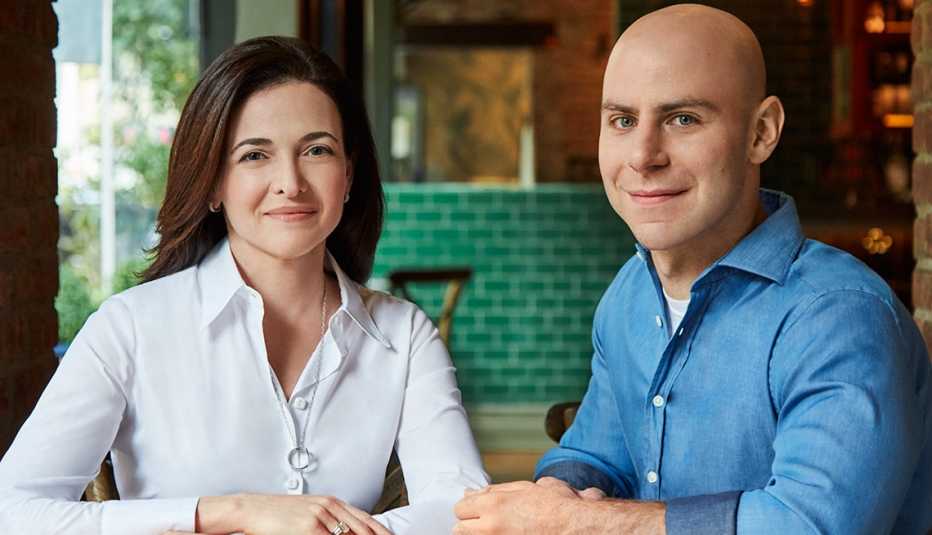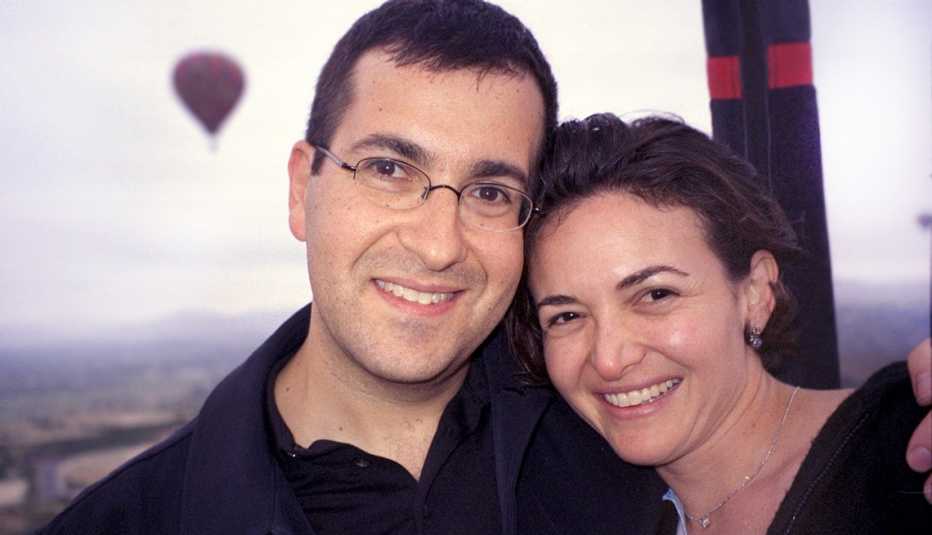Staying Fit


Why did you want to write Option B ?
I was really struggling. The impetus for the book was trying to figure out how to get through that acute phase of grief. But even more, to live with it and try to find some meaning, some growth. Certainly as we get older, loss is a part of our lives.


AARP Membership— $12 for your first year when you sign up for Automatic Renewal
Get instant access to members-only products and hundreds of discounts, a free second membership, and a subscription to AARP the Magazine.
You write about fear. How does one begin moving beyond that?
After Dave died, I worried about things I had never worried about before: Would my kids get hit by a car riding their bikes in our neighborhood? Would my son die under general anesthesia during an operation? I think I was much more nervous about things going wrong because I had lived through the experience of things going completely wrong. But I think the fear is also really rooted in isolation.
So, don't isolate yourself after a trauma?
You have to find ways to break the isolation. I found it very hard to tell people that I wanted to talk. It felt like I was imposing my sadness on them. When someone asked, "How are you?" I kept saying "I'm fine," and then people wouldn't ask me any questions. But I learned to say, "I'm actually not doing that well." One of the most common things about grief, about loss, about adversity, is silence. So what happens is, you go through this adversity or trauma, and then what piles on top of that is the isolation of no one talking about it.
You write about the "three P's" that stunt recovery. The first one is personalization: the belief that we are at fault for our losses.
Yes, these are processing traps that were identified by the psychologist Martin Seligman. With personalization, we all blame ourselves. I blamed myself for Dave's death initially because I thought he had died of trauma. He didn't die of trauma. He died of coronary artery disease. And when I found that out, I blamed myself that I hadn't diagnosed coronary artery disease. You have to let that go.


The second "P" is pervasiveness: the belief that an event will affect all areas of our lives. Can you talk about that?
Even though there's so much that's gone wrong, there are things that are still positive. You have to give yourself permission to notice and appreciate what's good.
And the third "P," permanence — that's the belief that the aftershocks of the event will last forever, right?
Yes, you have to really believe that it won't feel like this forever. People who had been through trauma and grief and loss told me it would subside, but I did not believe them, because it was so overwhelming.

































































More on Home and Family
Tribute to a Modern-Day Dad
Fathers can be magically multidimensional. Just ask this mom
Leaning In — To Resilience
Sheryl Sandberg reveals in her book 'Option B' her battle with despair after the tragic death of her husband